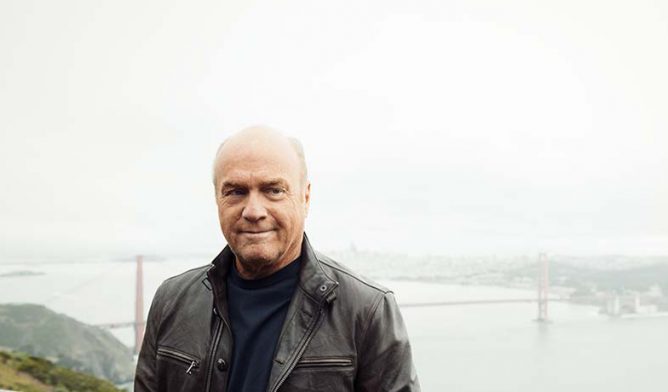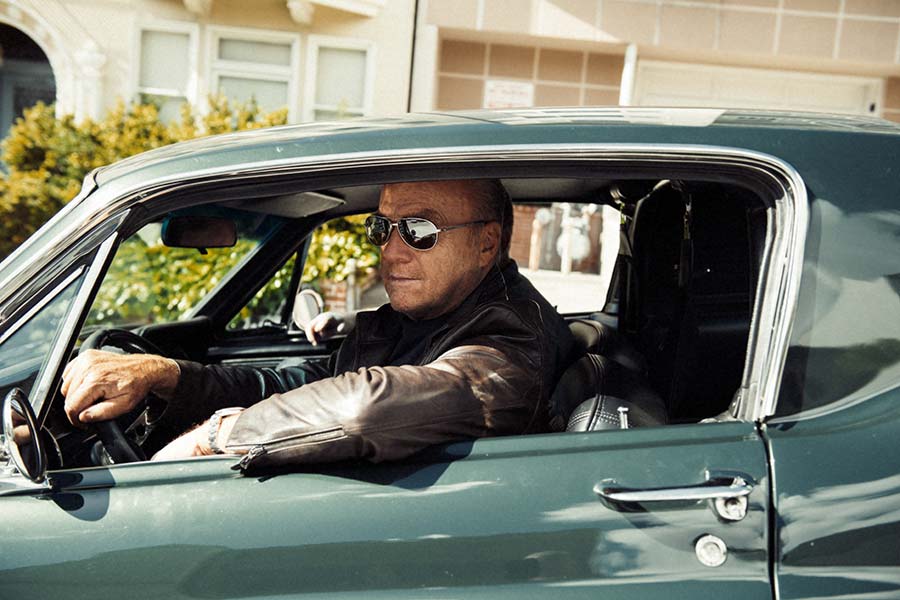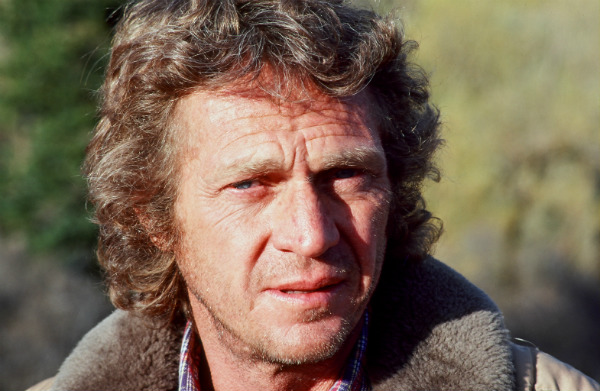Greg Laurie Talks Steve McQueen, Faith and Mesothelioma
CelebritiesWritten by Matt Mauney | Edited By Walter Pacheco

“Steve McQueen: American Icon” — a feature documentary about the life, faith and cancer battle of the legendary actor — arrives on DVD and digital HD release Tuesday.
Nicknamed “The King of Cool,” McQueen is known for his tough guy roles and action-packed sequences in films such as “Bullitt,” “The Great Escape” and “The Towering Inferno.”
He received an Academy Award nomination in 1967 for his leading role in “The Sand Pebbles” and became the highest-paid movie star in the world in 1974.
Shortly after, McQueen disconnected from Hollywood in search of a life away from the drugs, the drinking and the fame.
He became a born-again Christian late in life after the influence of his flying instructor Sammy Mason, his pastor Leonard DeWitt and his third wife Barbara Minty McQueen.
McQueen was diagnosed with pleural mesothelioma on Dec. 22, 1979. He died of cardiac arrest less than a year later during an experimental surgery in Juarez, Mexico, at age 50.
It was McQueen’s faith that gave him the courage to fight in the final months of his life. His faith also gave him peace in his final days living with Barbara on their ranch in rural Idaho.
It’s this message Pastor Greg Laurie of Harvest Christian Fellowship conveys in “Steve McQueen: American Icon.” In the documentary, Laurie travels the country in a mint replica of McQueen’s 1968 Ford Mustang from the movie “Bullitt,” interviewing those who knew the actor best.
Laurie spoke with Asbestos.com about the film, McQueen’s faith and the cancer that took “The King of Cool” away from the world.

Interview with Laurie
Q: Explain the idea of this film. How did it come about and what is its purpose?
Laurie: All of this started for me when I drove a replica of a Bullitt Mustang, a car I’ve always loved as a McQueen fan.
Not long after, I watched a documentary film about the life of Steve McQueen. It told about his difficult childhood and his ascent to fame as the No. 1 star in the world. Then he disconnected from Hollywood, got cancer and died. The end.
I thought, wait! I heard he became a Christian, but I had no firsthand knowledge. I Googled “Steve McQueen conversion to Christianity” and found the name Leonard DeWitt, supposedly Steve’s pastor.
When I tracked him down, we spoke for more than an hour, and I flipped out over the story. That night I was with Jon Erwin, who eventually directed “Steve McQueen: American Icon.” Jon caught the vision in five minutes or less. We said, “We should make a documentary to tell in its entirety the life and transformation of Steve McQueen.”
I thought this is a story very few people know. Steve McQueen, the No. 1 star in the world, became a Christian at the very peak of his fame.
This is not a secret, but in a way it has been hidden in plain sight. I wanted more people to know the hope that Steve found.
Q: Can you briefly explain the impact cancer had on McQueen’s life and his faith? From the interviews you sat in, what did you learn about how McQueen coped with his mesothelioma diagnosis?
Laurie: Steve was always a fighter. That goes back to his troubled childhood, where he was abandoned by his biological father.
His alcoholic mother had very little time for him. He spent time living with his uncle and other relatives. He was ultimately sent to a reform school.
Steve had to learn to fend for himself, and that explains his rise in Hollywood. In addition to his talent, he had a very strong drive to prove himself.
When diagnosed with cancer, Steve refused to just accept it. With his newfound faith, he wanted to beat it and tell his story of what Christ had done for him.
Sadly, that was not to be. One of the reasons we made this film was to right that wrong and tell the amazing story of his faith journey.

Q: What was the most interesting or fulfilling part of working on this film? What is the message you hope to convey to viewers, especially those that may be facing life-changing events such as a cancer diagnosis?
Laurie: Steve never gave up. He fought cancer with faith and courage.
He also took time to encourage others who had cancer. I know that being diagnosed with cancer can sound like a death sentence, but it doesn’t have to be.
There are many amazing treatments available today that were not even around when Steve McQueen was diagnosed with mesothelioma. Steve’s ultimate strength and hope came from his faith in Jesus Christ.
I would hope others would follow his example.
Q: What was your knowledge of mesothelioma before your involvement in this film? How has your knowledge or thoughts about the cancer changed, if at all?
Laurie: At one time, I couldn’t have pronounced mesothelioma.
And not so many years ago, no one knew it as a killer. Now that we know what mesothelioma is — that it’s preventable — we’re overdue to see everything possible done to end it and to reduce [asbestos] exposure.
This only makes sense. It took a great man from us too soon.
McQueen Documentary Raising Awareness for Mesothelioma
Although a faith-based venture from Erwin Brothers Entertainment and Laurie, “Steve McQueen: American Icon” became a platform for mesothelioma awareness and the dangers of asbestos exposure.
A public service announcement from the Asbestos Disease Awareness Organization featuring Barbara McQueen aired before each of the three special screenings of the documentary.
With the film now available to millions through Amazon and Walmart, McQueen fans have the opportunity to learn more about the rare cancer that took his life.
“He had the worst cough I ever heard in my life,” actor Mel Novak recalls in the film. “It was like the deepest, horrible…I got chills. That thing would last for minutes.”
In the documentary, Barbara McQueen recalls Steve telling her how he used to scrape asbestos off pipes in a ship’s engine room during service as a U.S. Marine.
Barbara McQueen has spent the last several years fighting against the asbestos industry and campaigning for tougher regulations on asbestos. The known carcinogen remains legal in the U.S. and kills more than 15,000 people each year.
“I want people to know how awful this disease is,” she told Asbestos.com in 2012. “It took my man away, stripped him from me. If there is anything I can do to help, I’m here to do it now.”







